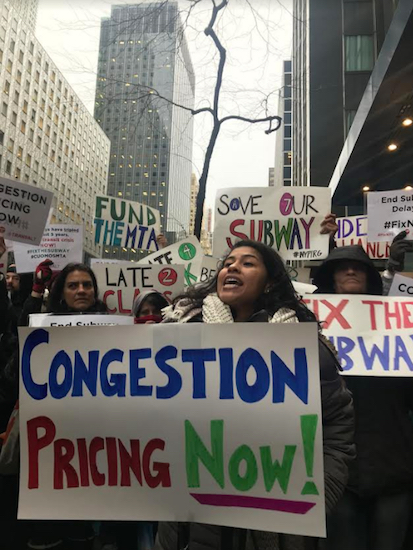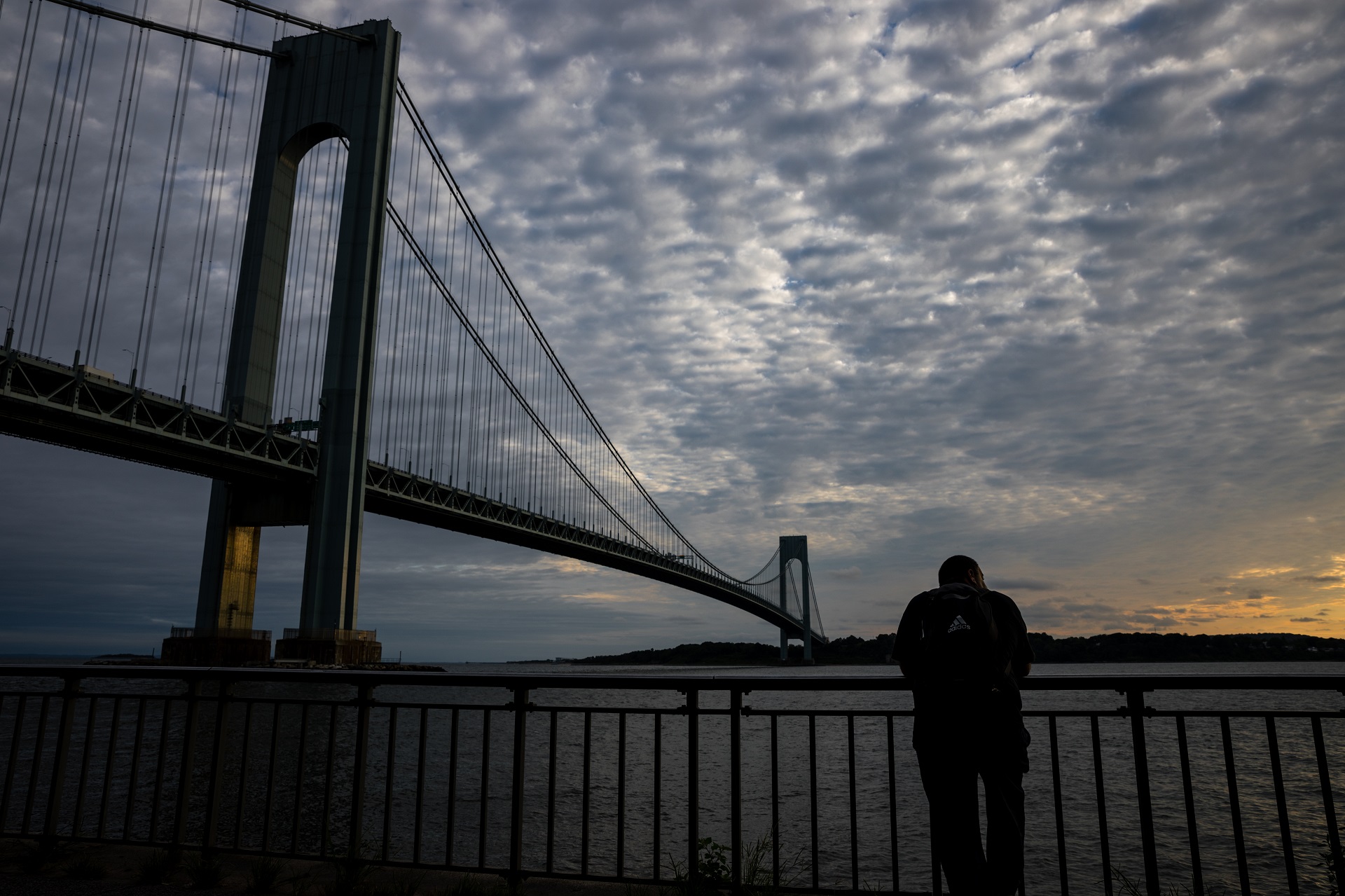Riders Alliance rallies for congestion pricing
Protesters demonstrate outside Cuomo’s office

Mounting a last-minute push to win approval of congestion pricing, members of the transit advocacy group Riders Alliance held a protest demonstration outside Gov. Andrew Cuomo’s midtown Manhattan office during the evening rush hour on Tuesday.
The protesters said they want the state Legislature to approve congestion pricing in the state budget currently being negotiated in Albany. In addition to the Riders Alliance, members of the Straphangers Campaign and Transportation Alternatives also took part in the protest.
Under congestion pricing, motorists would have to pay a toll to drive into Manhattan south of 60th Street. The funds generated by the tolls would go toward repairing the city’s subway system. Congestion pricing could raise an estimated $1.5 billion a year to modernize the city’s old and deteriorating subway system, according to the Riders Alliance.
